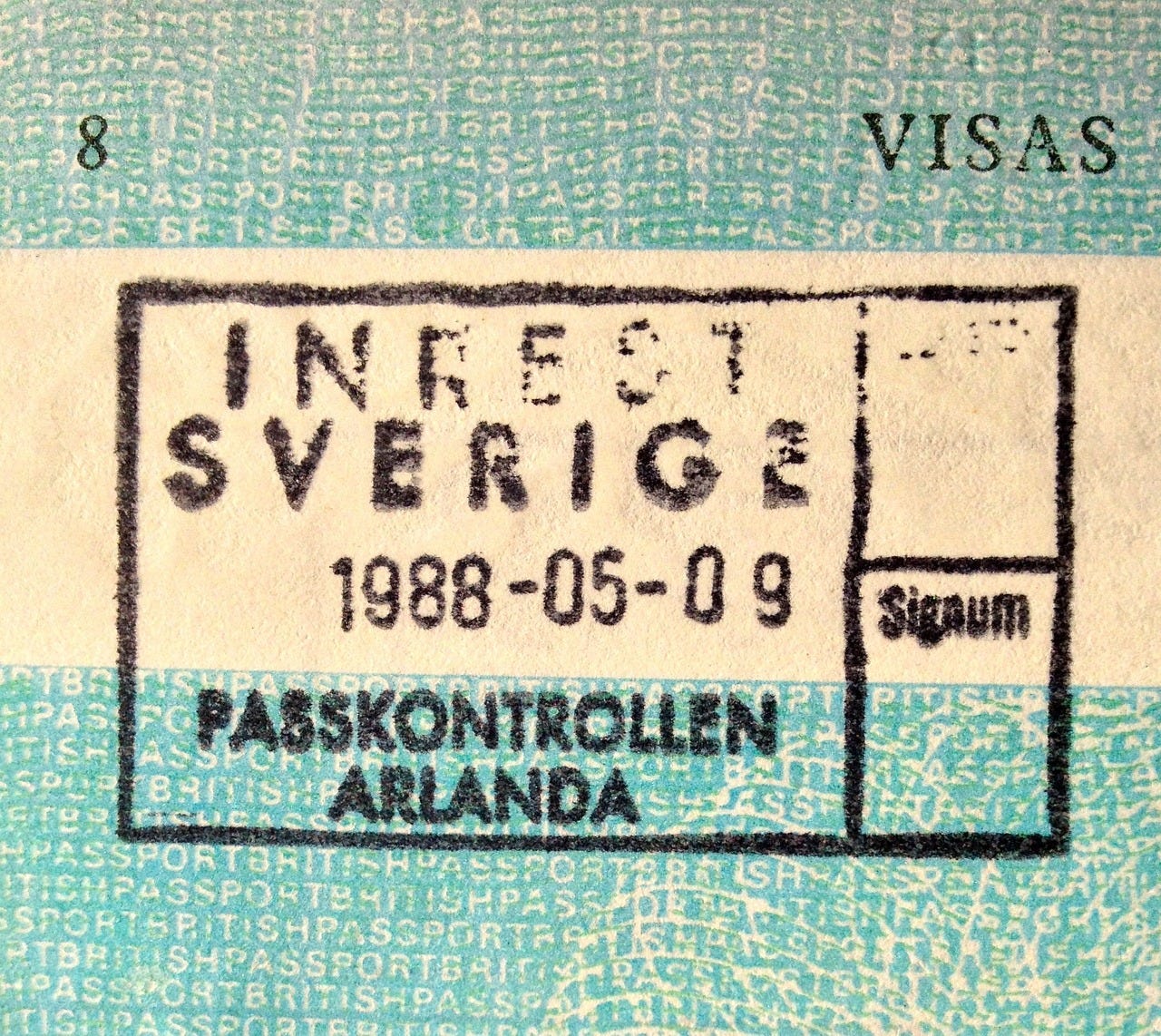How to choose a city to immigrate to - Part #2
10 factors to consider in your selection process
In case you missed it:
This is part #2 of the how-to-choose-a-city-to-migrate-to post. I already introduced the topic in part #1 of this mini-series, so I will cut straight to the chase. What you need to remember from part #1 is that:
This post aims to lay down the main factors that you need to consider before you select a city to move to.
Plain and simple.
All-in-all, there are 10 factors you need to consider. I covered the first 4 in the previous post. I will cover the rest today:
Cost of living
This one should be pretty self-explanatory and usually the first one that comes to mind: you want a place where the cost of living is low relative to your income. Be careful to not only take income into account: high income does not mean much, if your expenses are equally high or even higher. What you want, is to maximize the difference between your income and your expenses.
On top of that, you might want your income to be in a currency that is strong also outside the borders of the country you will be living. That means that your money will go a long way if you decide to move again or travel.
This calculation is not as straightforward as it sounds and it changes depending on your point in life.
First of all, it is anyway difficult to compare expenses between countries. Maybe one country gives you higher salary, but has higher taxation and you need to cover your own health insurance. Maybe rent is also higher. Few changes like these and it becomes very difficult to pick a winner.
The calculation changes depending on your point in life, because your needs will also change. If you don’t have small kids, you don’t care how much daycare costs, so you don’t take that into account in your expenses. But if you do have kids, then having free daycare provided by the state, alleviates a big financial burden from your shoulders. Therefore a lower salary might be justified, if you do not have to worry about daycare or similar expenses.

If you know people living in that city, you can (and should) always ask. If you are moving because you got a nice job, you can also ask the company’s HR1 department for a guideline on living costs and extra expenses, like insurance, that you might need to consider.
Nature
Especially for people who have grown close to nature, having easy access to it is important. There are others who like outdoor activities and extreme sports, like skiing, kite-surfing or hiking. Some big cities might offer green spaces and big parks, but not all of them offer easy access to nature. If that is the case and you really value nature, you might want to consider a different city, or a more rural destination.
Growing up in a busy city myself, I did not feel the need to set this criterion too high on my list. That however, changed after I spent some time in the US and experienced first-hand, how amazing it is to be half an hour away from Rocky Mountain National Park.

Hint: If you look closely at the pictures in this post about postcards, you will notice quite a few from the US.
Weather
This one comes up often. I have many friends who are looking to move in search of better weather2. Similarly, this is often mentioned on online forums as a reason that people are looking to change countries.
It is pretty straight-forward why people are looking for sunny, warm weather. I will however mention that in my experience, this might not necessarily align to the monetary criteria, so you might need to choose one over the other.
Human rights and Inclusivity
Maybe this does not cross your mind if you do not belong to a minority, but not all places are equally inclusive. It might be that the wage gap between men and women is large. It might be that the society is not yet (so) open to LGBTQ+ people. Or it might just be that there are very few expats and the place is too homogeneous to accept foreigners easily.
Keep in mind that this is one of the factors that should definitely be examined per city and not per country. Saying that the UK is an inclusive country might be misleading, because you are thinking of a big city, for instance London. But does that also apply for Manchester? Maybe yes, maybe no. My point is, you should examine the situation in the specific city you are looking to move to.
Corruption
In Sweden, you can access anyone's financial information on demand. While this is a strange concept, it aims to increase transparency and reduce wage gaps between employees in similar positions.
This may be irrelevant to you if you come from a country that democratic institutions function properly, but coming from a country that ranked 108th out of 180 in 2022 (and 107th in 2023) in the freedom of press index by the RSF3, corruption is something that I try hard to avoid. So, Sweden's financial transparency system might sound cute, but it is also a sign of a country where corruption is low and a citizen can have trust in the state.
Immigration policy
I left this for last, because even though it might be the most important factor, it does not apply to everyone. Before moving to a new place you should consider the bureaucratic hassle involved. Have you already found a job that will grant you a residence permit? Can your family come and visit you or will your target country reject their visa application? The severity of these factors might range from trivial to deal-breaker, depending on where you come from and where you aim to migrate.

Conclusion
You know best what works for you and this post -unfortunately- cannot help you with that. However, you can use is at a guideline of things to consider before moving to a new country. You might even write all of these points down and rank them from 1 to 10, if that helps you structure the selection process. That does not mean that your priorities cannot change in the future4; but this post can help make a decision based on the information you have at the moment.

If you do try this exercise, please let me know in the comments what ranked the highest for you and why. Also let me know if I should add anything to this list. For me corruption, cost of living and proximity to a good airport ranked high during that process. If you have read The 3 levels of language fluency, you know that language obviously didn’t.
-The Naive Ignorant
Human Resources.
Denmark is not exactly what you would call a tropical destination.
Reporters Without Borders.
One thing is for sure: they will.




Great tips! I've always considered variations of those when deciding on a city, even for tourism. However, I noticed that in the past 5-6 years or so, a trend is emerging where people are choosing cities based on their popularity on social media instead of practicality, which ends up overrunning the said city and causing that city to tighten its policies. It's a vicious circle and all that.
Nature is number 1 for me (as I mentioned in a previous comment) even though I am a townie like you. Great point about human right and inclusion, this is so important for many travellers and we should not take it for granted.